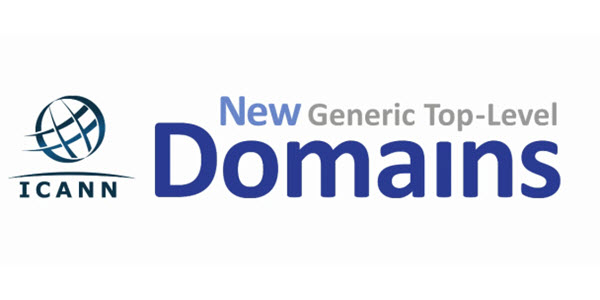Colin Campbell, CEO of .Club, wrote an article on CircleID titled: “Usage Trumps Registrations: Why Past TLDs Failed and Why Many Will Follow in Their Path“.
Colin makes some very interesting points:
We saw highly contested auctions for extensions like .SHOP, .APP, and my own .CLUB, require millions in investment while other extensions were orphaned, looking for someone, anyone, to pay the adoption fee of $185K. Yet some of these orphans have convinced the masses to vote for them and register names en masse. Or at least that is the spin. The fact is that a very small number of domainers account for a large percentage of these registrations. Of the top 2 registered new domain extensions, 100 users account for 44% of all the registrations (excluding those names in privacy). More significantly, for the same extensions cumulatively, Asia accounts for 72% of all registrations.
Those top 2 registered new extensions are of course .xyz and .top. These extensions that are sometimes sold at cost or even below cost are used by many spammers buying disposable domain names. I also think that no. 3 and 4 of TLDs, .wang and .win, have similar registration trends. This problem has the potential to destroy an extension but registries don’t take it too serious.
The fact is that speculation in China has been driving demand for many of these new extensions. To date, no foreign registry has been approved in China, which means that users cannot setup China hosted websites on a foreign owned extension until the registry receives approval from the Chinese government. Prices for new short character domains on new gTLDs have risen dramatically. So clearly we have a highly speculative market. Those of us who have been around the block a few times, know that hope and prayer is not an investment strategy (and on a side note, it’s not a voting strategy either). To a lesser extent, .CLUB has also been a beneficiary of the active Chinese investor market for registrations and sales of premium inventory. We were one of the first to seek Chinese government approval and are hopeful that we will obtain approval shortly.
People expecting mass development of these thousands of domain names must think again. Even with a Chinese government approval it is not going to happen. It is like waiting for BuyDomains.com and HugeDomains.com to suddenly build thousands of websites. But development of some of the best domains can start fueling recognition and adoption within China.
We even went as far as interviewing an ex-employee from .TRAVEL. This individual explained that the extension ran into problems with ecommerce systems because of the number of characters in the name. In addition, the restrictions around .TRAVEL hampered the ability for registrants and registrars to easily register the name resulting in higher than acceptable fees for their customers. I find it very telling that .PRO is now getting a new life after its similar restrictions have been removed.
Unfortunately .pro is also prone to spammers because of wrong marketing and pricing.
What are the lessons domain investors can learn here? Stop following the crowds focusing on large registration numbers and start thinking about the “worst case” scenarios. Ultimately what drives value for .COM and .ORG is global usage and meaning. .COM is the legacy leader, and .CLUB a new gTLD leader. Each has demand in every country in the world for premium names. If the market crashes in one country an investor can sell the names in other countries, especially if the domain has global appeal.
Great advice. Period.
At .CLUB, we continue to do it the hard way, slogging it out — one tradeshow at time, one advertisement at time, and one sale at a time. In the current election I am watching for candidates that run on facts and performance record, not just puffery. Usage Trumps registrations in our campaign.
To read the complete article click here: “Usage Trumps Registrations: Why Past TLDs Failed and Why Many Will Follow in Their Path“.
Antony Van Couvering, former CEO of Minds + Machines, left a comment with some solid advice. Too bad he didn’t follow his own advice before he got fired.
There is nothing magical about a new TLD by itself. A customer isn’t buying the TLD, they’re buying a domain name, which with a gTLD carries meaning both to the left and the right of the dot — and they have to be meaningful when paired together.
Ads aren’t going to do it, ICANN’s not going to do it, hoping that some brand is going to make new gTLDs an overnight success isn’t going to do it either — but getting to know your distributors and your end-customers will. It’s not instant, it’s not easy. It’s called business, and registries that want to survive need to get into the business of being in business.
 OnlineDomain.com Domain Name News & Opinions
OnlineDomain.com Domain Name News & Opinions



 OnlineDomain.com - © Copyright 2012-2026 - All Rights Reserved
OnlineDomain.com - © Copyright 2012-2026 - All Rights Reserved
I am very suspicious of some of these new tlds sales that get announced and the sale dates . This helps to keep the spin going for a new tld. But it seems to me to be all smoke and mirrors . And the mass of people hoping to get rich and land a sale like the ones we keep hearing about will never happen like the ones we hear.
I still believe the old joke
How do you make a small fortune on new tlds
You start with a very large fortune first lol
Quite a good article, actually. Most registry CEOs offer us a fantasy future, but Colin Campbell is offering a reality check.
He makes a persuasive case – although, to be fair, it’s what I’ve also been saying for years with negligible results; so I can’t really tell if it’s really persuasive! – that real-world usage, not reg volume, is what counts.